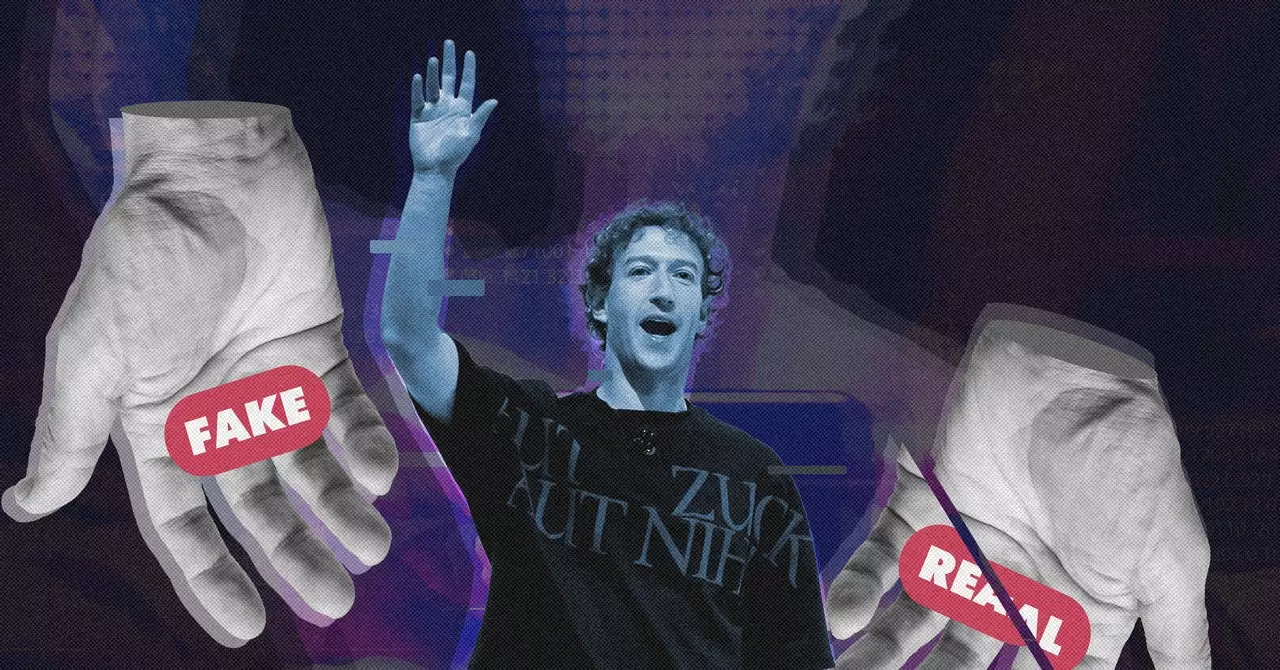In a surprising 180-degree turn, Meta Platforms, Inc. has decided to dismantle its existing fact-checking program in light of Donald Trump’s anticipated second presidential term. This strategic retreat reflects both a response to the current political climate in the United States and the emergence of competitive alternatives such as X’s Community Notes. Mark Zuckerberg’s recent pronouncements about the dissolution of this program have elicited significant criticism, particularly from established figures in the field of fact-checking and disinformation research.
In a public statement, Zuckerberg claimed that fact-checkers had become embroiled in political bias, ultimately diminishing the trust they were purportedly meant to build among users. This assertion raises critical questions about the underlying motivations behind Meta’s decision. Laura Zommer, former director of Chequeado and current head of Factchequeado, has pointed out the lack of scientific backing for Zuckerberg’s claims, arguing that the role of fact-checkers is mischaracterized. Rather than censoring information, Zommer emphasizes that fact-checkers aim to provide context and clarity, enabling citizens to make informed choices about the information they consume.
This debate is part of a larger discourse around the ethical responsibilities of tech companies in moderating content and combating misinformation. By rejecting a structured approach to fact-checking, Meta appears to yield to pressures from political factions that advocate for unfettered speech, even when it promotes falsehoods. This course of action, as Zommer suggests, undermines the earlier commitments Meta made to uphold journalistic integrity and credibility.
As the political landscape shifts with Trump’s imminent return to power, the ramifications of the removal of Meta’s fact-checking program could be particularly detrimental for marginalized communities. The Hispanic population in the United States, already grappling with pervasive anti-immigrant sentiments, is likely to be disproportionately affected by the surge in misinformation. Zommer notes that previous campaigns against migrants were fraught with false narratives, and there is little reason to believe the trend will reverse. Without the safeguards that fact-checkers provide, vulnerable communities may become even more susceptible to damaging propaganda.
Moreover, this troubling development emerges against the backdrop of an alarming rise in disinformation tactics, including deepfakes—both visual and auditory—that can easily mislead the less discerning viewer. The degradation of reliable information sources necessitates urgent action. In this context, the absence of a fact-checking presence on major platforms complicates the fight against misinformation and intensifies the need for vigilant media literacy efforts among the public.
Within the broader Latin American context, the consequences of Meta’s choices take on a threatening dimension. Many fact-checking organizations and media outlets rely on financial support from Meta’s program to maintain their operations. Pablo Medina, disinformation research editor at the Latin American Center for Investigative Journalism, warns that the withdrawal of funding may precipitate the collapse of numerous dedicated organizations unless they manage to innovate and diversify their revenue streams promptly.
Zuckerberg’s controversial remarks about “secret courts” overseeing content moderation in Latin America raise additional alarm bells. Tai Nalon, CEO of Aos Fatos, argues that such rhetoric parallels Trump’s longstanding antagonism towards journalism and fact-checking initiatives. Significantly, these narratives have been weaponized by far-right groups worldwide to undermine effective accountability measures against false information. Accordingly, the motivations behind this shift in Meta’s policy appear not only reactive but also strategically aligned with broader political interests.
As Meta navigates a tumultuous political landscape, its decision to dismantle the fact-checking program should serve as a warning signal for all stakeholders in the information ecosystem. The lack of demonstrated commitment to combating misinformation through structured processes raises critical concerns about the future of credible information both in the US and beyond. The ramifications of this decision extend far beyond Meta itself; they threaten to unravel the mechanisms that protect democratic discourse and informed citizenry.
In a world where the propagation of false information can have serious repercussions—especially for marginalized communities—greater accountability from tech giants is imperative. The responsibility it bears for maintaining the integrity of its platform cannot be overstated. As political circumstances evolve, the demand for transparency and truth in the digital sphere has never been more critical.

